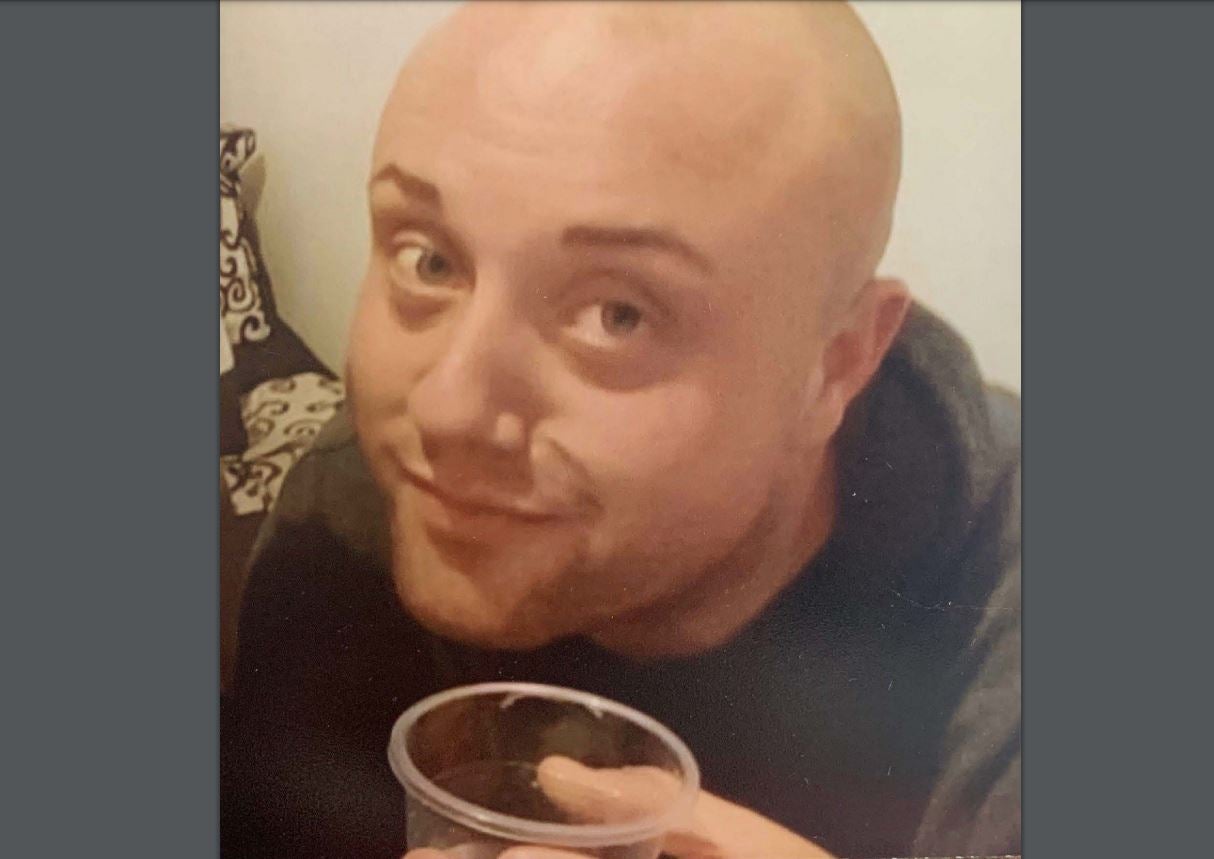Family of Manchester bomb victim John Atkinson hit out at ‘mistake after mistake’ in emergency response
John Atkinson’s family say the bombing should have been prevented and that he should have received better care

Relatives of a Manchester Arena bombing victim who could have survived his injuries with faster medical care have hit out at “mistake after mistake”.
John Atkinson, 28, had been at Ariana Grande’s concert with a friend on 22 May 2017 when he was caught up in the deadly blast.
The public inquiry into the bombing heard that he did not go into cardiac arrest until one hour and 16 minutes after the explosion, having lost a significant amount of blood as he lay in agony on the foyer floor.
Mr Atkison’s family rejected an apology from consultant paramedic Dan Smith, the operational commander for North West Ambulance Service (NWAS).
Giving evidence to the inquiry on Thursday, Mr Smith said: “I am truly sorry if any decision that I made impacted on his survivability.”
Sir John Saunders, who is leading the inquiry, told the paramedic: “Had he got that treatment early enough, when NWAS were at the scene and you were capable of giving it, then he probably would have survived. That is not a situation which should happen.”
In a joint statement, read by their lawyer Richard Scorer, Mr Atkinson’s relatives said the bombing “should have been prevented by proper security” in the first place.
“To compound this, John was badly let down by some from the emergency services. Mistake after mistake was made, and precious time was allowed to ebb away whilst John needed urgent hospital treatment,” they added.
“This should never have been allowed to happen. John had so much to give.
“We heard the apology last week from Mr Smith from the North West Ambulance Service. We cannot accept this apology. Actions speak louder than words, and we wait to see what actions are taken to ensure this never happens again.”
Mr Atkinson, a health worker, was described as a kind, intelligent man who “would light up any room he walked into”.
His family said he was going to be a foster father and was a caring uncle, brother and son who always put others first.
“Since his untimely passing, our lives have been shattered as we try to live with the massive void he used to fill,” they added.
The family thanked people who helped Mr Atkinson while he was injured, and said hearing evidence of the kindness of strangers after the bombing was a “small glimmer of hope in our darkest moments”.
The statement praised “hero” Ronald Blake, a member of the public who held an improvised tourniquett on Mr Atkinson's right leg for up to an hour before paramedics reached him.
Only three paramedics entered the City Room on the night - two of them just a few minutes before Mr Atkinson was evacuated. He was not triaged, assessed or assisted by NWAS personnel at the scene of the bombing.
He lost a significant amount of blood from leg injuries as he remained on the foyer floor for 47 minutes, before police carried him on a makeshift stretcher to a casualty clearing area at Manchester Victoria station.
More than 20 minutes passed - as ambulances queued outside - before Mr Atkinson went into cardiac arrest at 11.47pm and was finally rushed from the Arena to Manchester Royal Infirmary at midnight.
A full trauma team of clinicians were waiting on his arrival six minutes later but they were unable to save him and Mr Atkinson was pronounced dead at 12.24am on 23 May, the public inquiry was told.
Last week, the inquiry heard that cardiology expert Dr Paul Rees said “alternative management strategies” for Mr Atkinson included the early application of medical tourniquets to both his legs and “rapid transfer for damage control resuscitation and surgery”.
Dr Rees said: “If it had been possible to extract him from the scene and deliver him safety to a pre-alerted trauma team with access to extensive blood products before cardiac arrest ensued, then survival might have been possible.”
A panel of blast wave experts also believed Mr Atkinson could have survived with timely medical intervention and the applying of effective tourniquets on both legs.
An initial post-mortem examination concluded Mr Atkinson died principally from the effects of blood loss from his leg wounds.
The inquiry is looking at how each of the 22 victims died and investigating whether any inadequacies in the emergency response contributed to their deaths.
Additional reporting by PA
Subscribe to Independent Premium to bookmark this article
Want to bookmark your favourite articles and stories to read or reference later? Start your Independent Premium subscription today.

Join our commenting forum
Join thought-provoking conversations, follow other Independent readers and see their replies